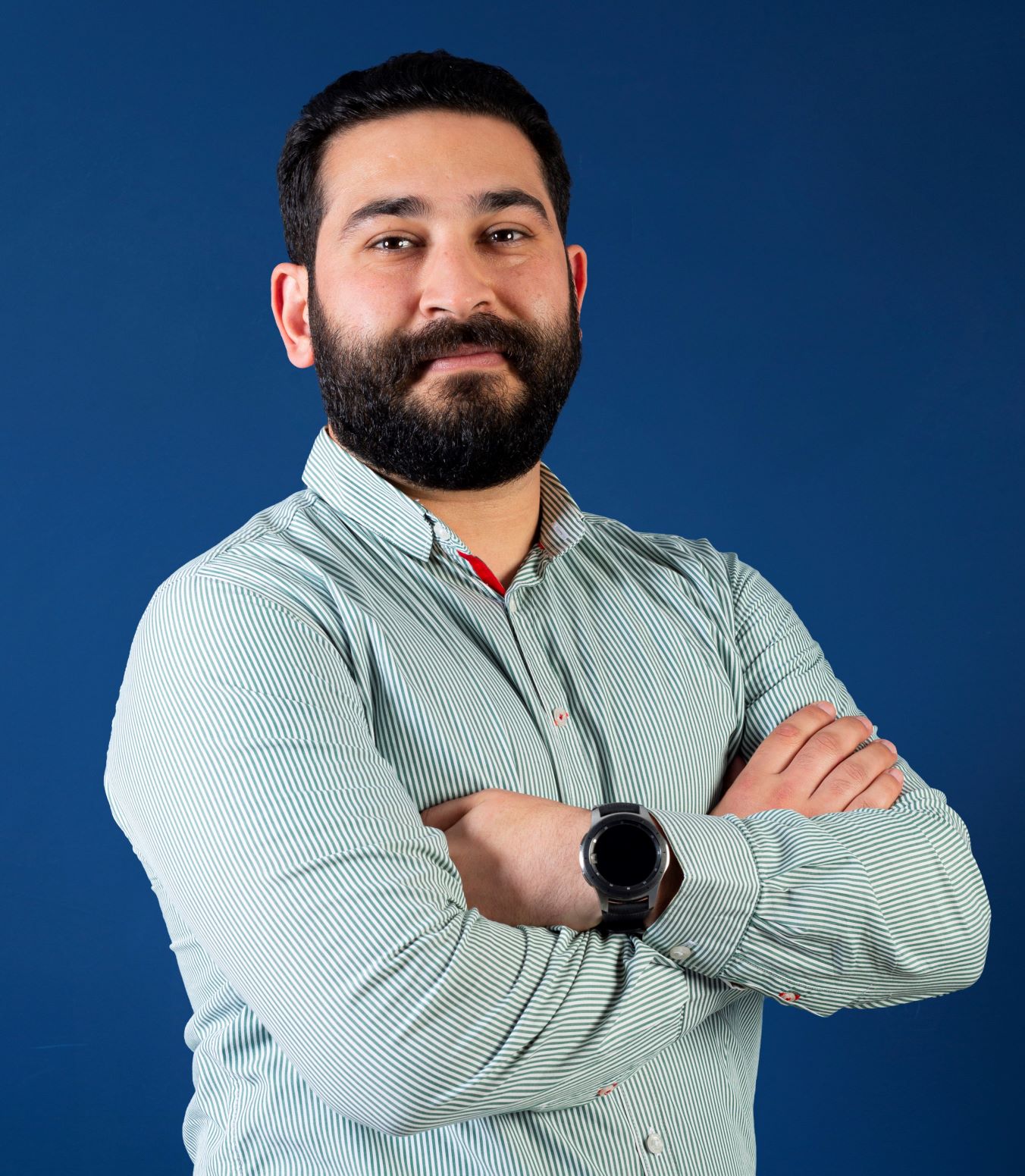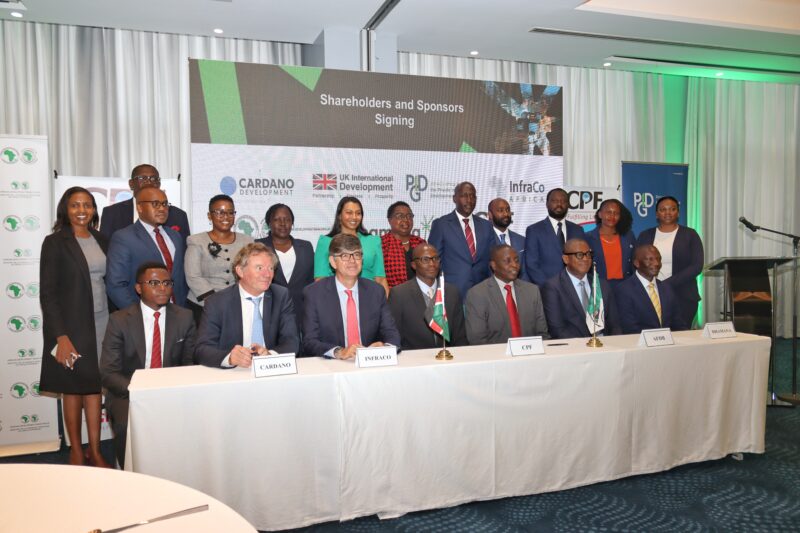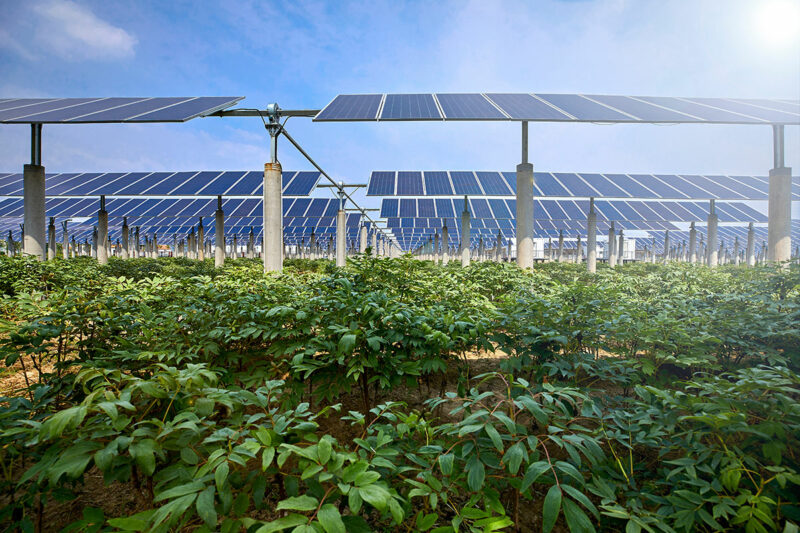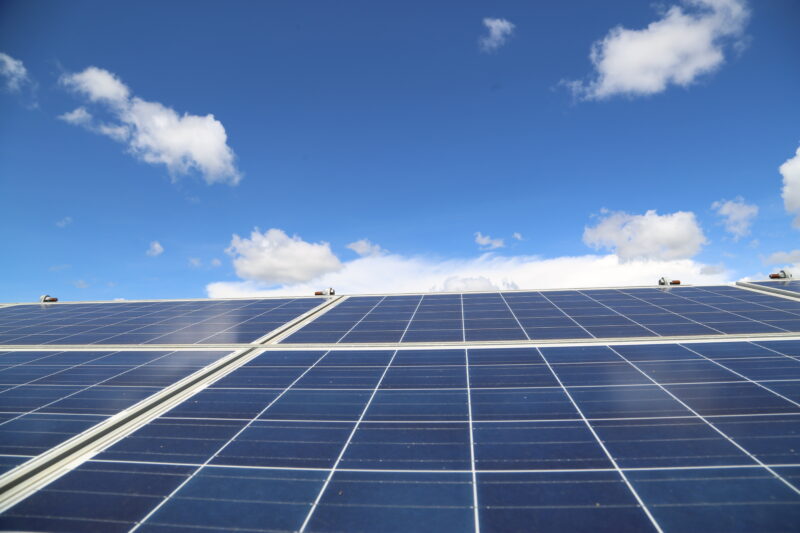Behind the scenes: Employment and empowerment – the impact of infrastructure
16th Mar 2022 | Leave a comment | By Jad Habbab
Africa’s population has a median age of 19.7,[i] and forecasts show that sub-Saharan African nations might contribute for more than half of global population increase between 2019 and 2050. This young and growing population will require access to decent jobs if we are to secure equitable and sustainable economic development for all. Infrastructure is vital in this context, and I’d want to take this opportunity to bring to light this sometimes-overlooked part of our job.
Creating jobs
When you think about jobs linked to an infrastructure project, what springs to mind? Men and women in hard hats and high visibility jackets working on a construction site? Our projects do create these jobs. For example, the Salima Solar project employed more than 800 people to build the recently commissioned 60MWac solar plant in Malawi.
However, employment opportunities extend far beyond the construction team.
The entire Salima Solar team ate lunch on site each day and jobs were created for local women managing the African Kitchen to supply them with nourishing meals, their work clothes were laundered by local workers and the site was kept safe and secure by a team of maintenance and security staff.
-
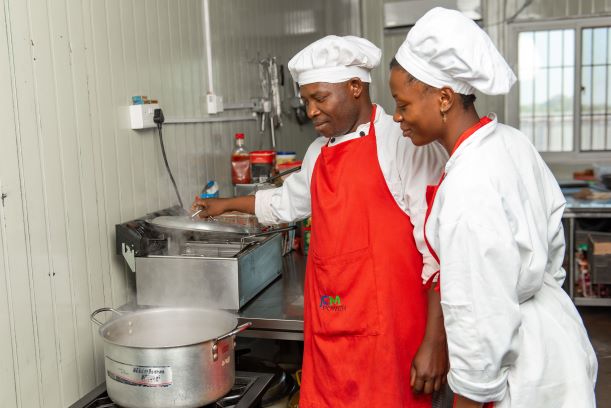
Feeding hungry workers -
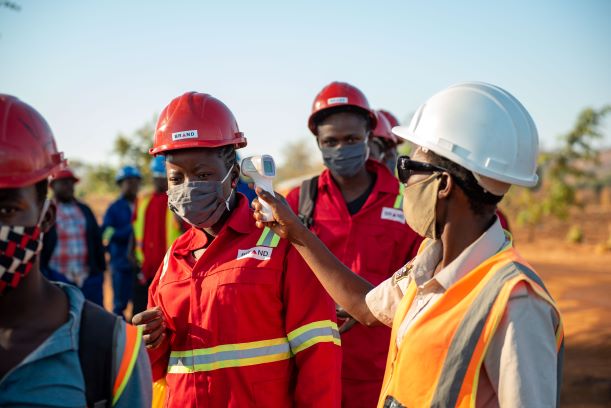
Creating local construction jobs -
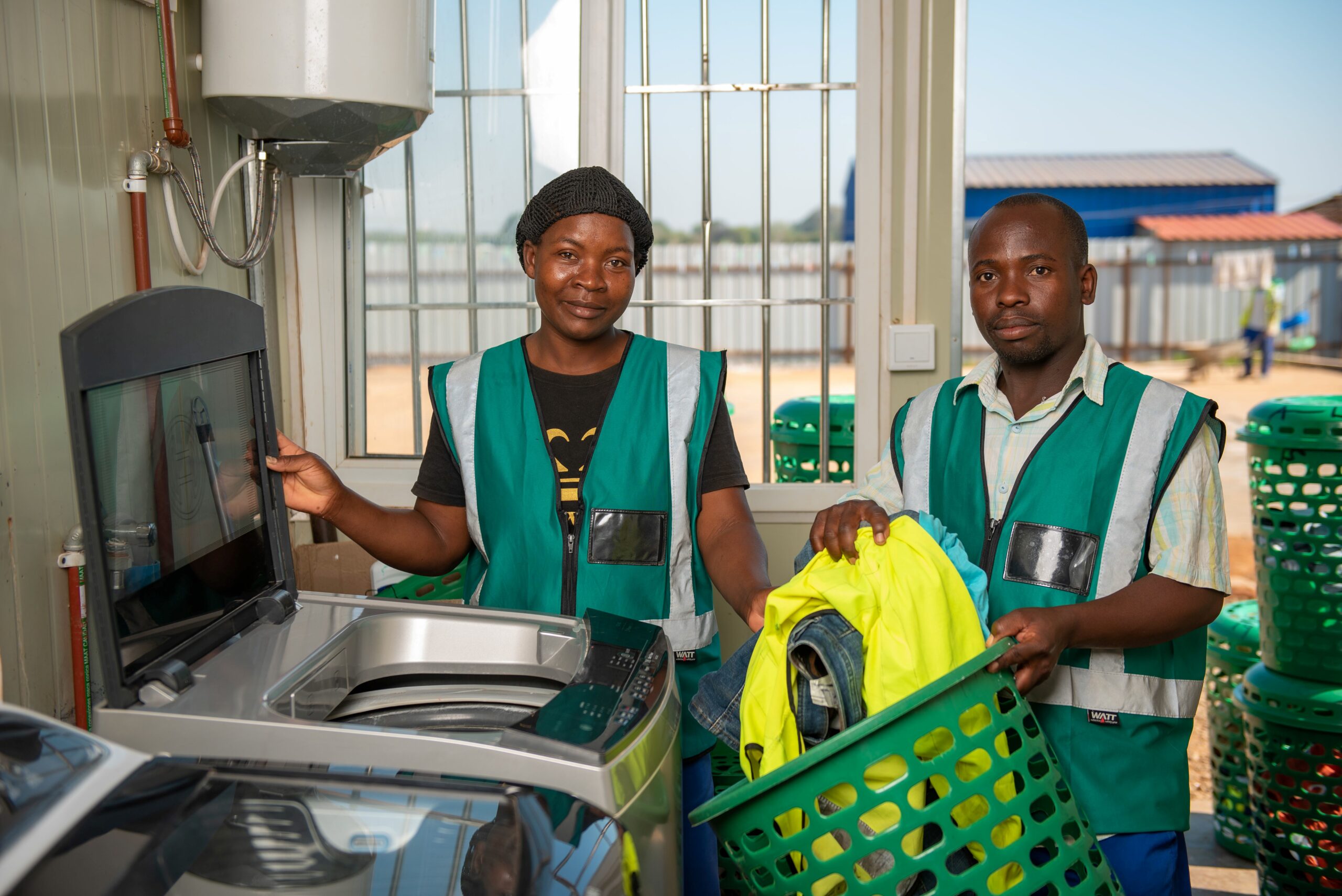
Keeping workers’ clothes clean
And it doesn’t stop there…
Jobs were also created throughout the project’s development phase – including those individuals tasked with undertaking feasibility studies, land surveys and due diligence. Additionally, opportunities were created in manufacturing and transport, enabling the project’s high-quality solar panels and fittings to reach the site.
And after commissioning?
Salima Solar has created 20 direct jobs in the long-term operation and maintenance of the facility as well as catalysing wider employment and income generation linked to Salima Solar’s Environmental and Social Governance (ESG) initiatives which support the health and livelihoods of nearby communities.
Making these jobs matter
Part of my job entails ensuring that all project staff have the necessary skills and equipment to carry out their tasks safely and effectively. I also strive to ensure that the projects we support deliver a positive employment experience for these employees.
To do this, a range of factors come into play…
We seek to maximise the employment of local staff, engaging with our partners on the ground to identify qualified candidates for available roles. I mentioned ‘men and women in hard hats’ earlier, but the truth is that women remain woefully underrepresented across our industry. As well as the moral imperative to address this disparity, there is also a clear business case for employing more women on our projects as the UNDP estimates that gender inequalities result in a loss of US$95 billion of revenue annually in sub-Saharan Africa.[i] During the recruitment period, we emphasise the need to attract women, disabled applicants, and other underrepresented groups into infrastructure jobs. On our East Africa Marine Transport project, we have worked to overcome specific hurdles preventing women from applying for professional mariner training opportunities. 32% of the current cohort are female trainees.
Once staff come on board, we make employees and contractors aware of their rights and responsibilities around, for example, Health and Safety, safeguarding and good governance. The PIDG Life Saving, and Safeguarding Rules are displayed on all sites and these act as a daily reminder and as a visual tool to support ongoing training. Where needed, InfraCo Africa delivers specialist training for our co-development partners – in HSES and Anti-bribery and Corruption management systems for example – and we actively encourage skills transfer and learning to take place between our projects. We also ensure that workers have fair pay and conditions of employment and that they have access to clear routes to addressing any grievances or concerns.
-
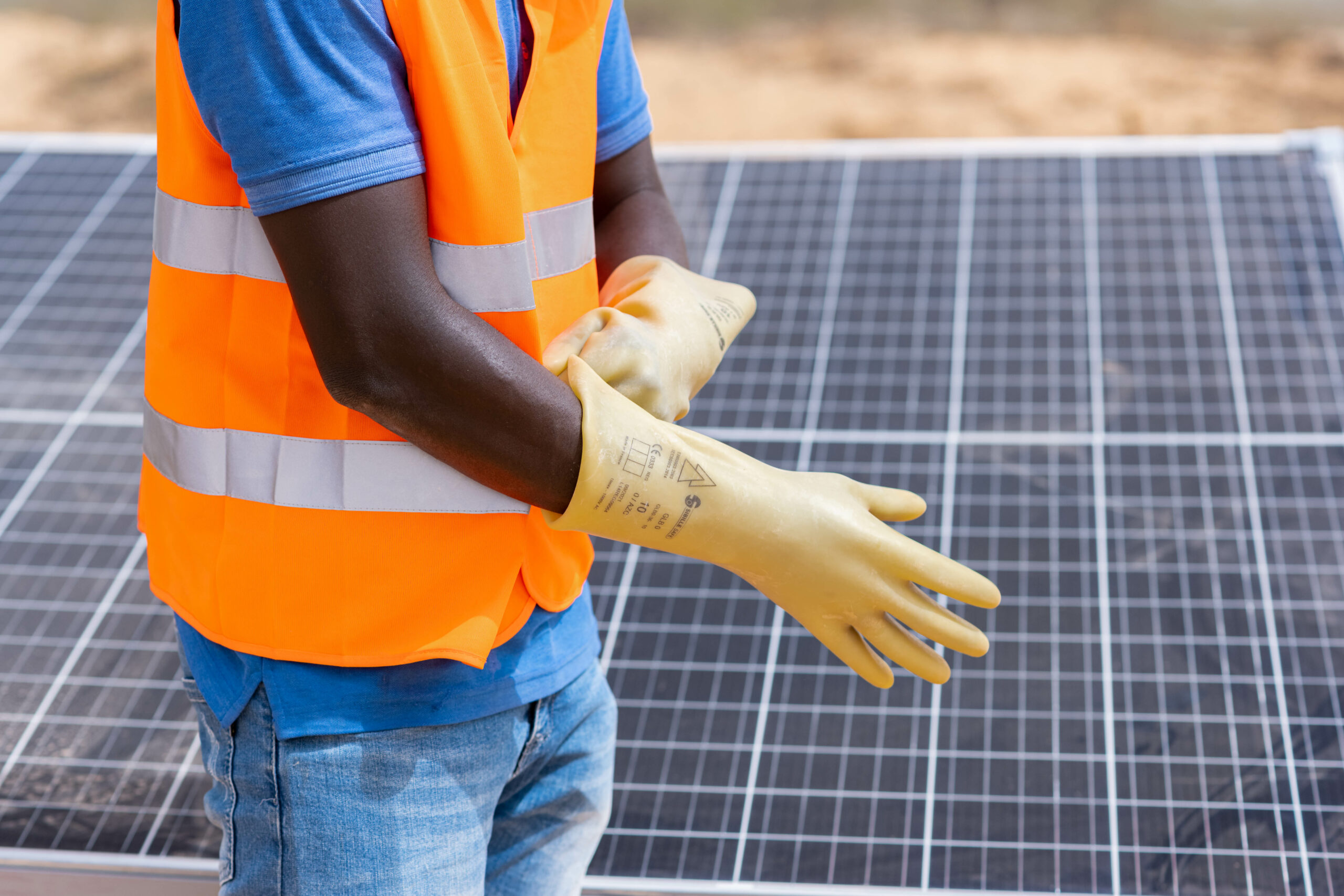
Keeping people safe -
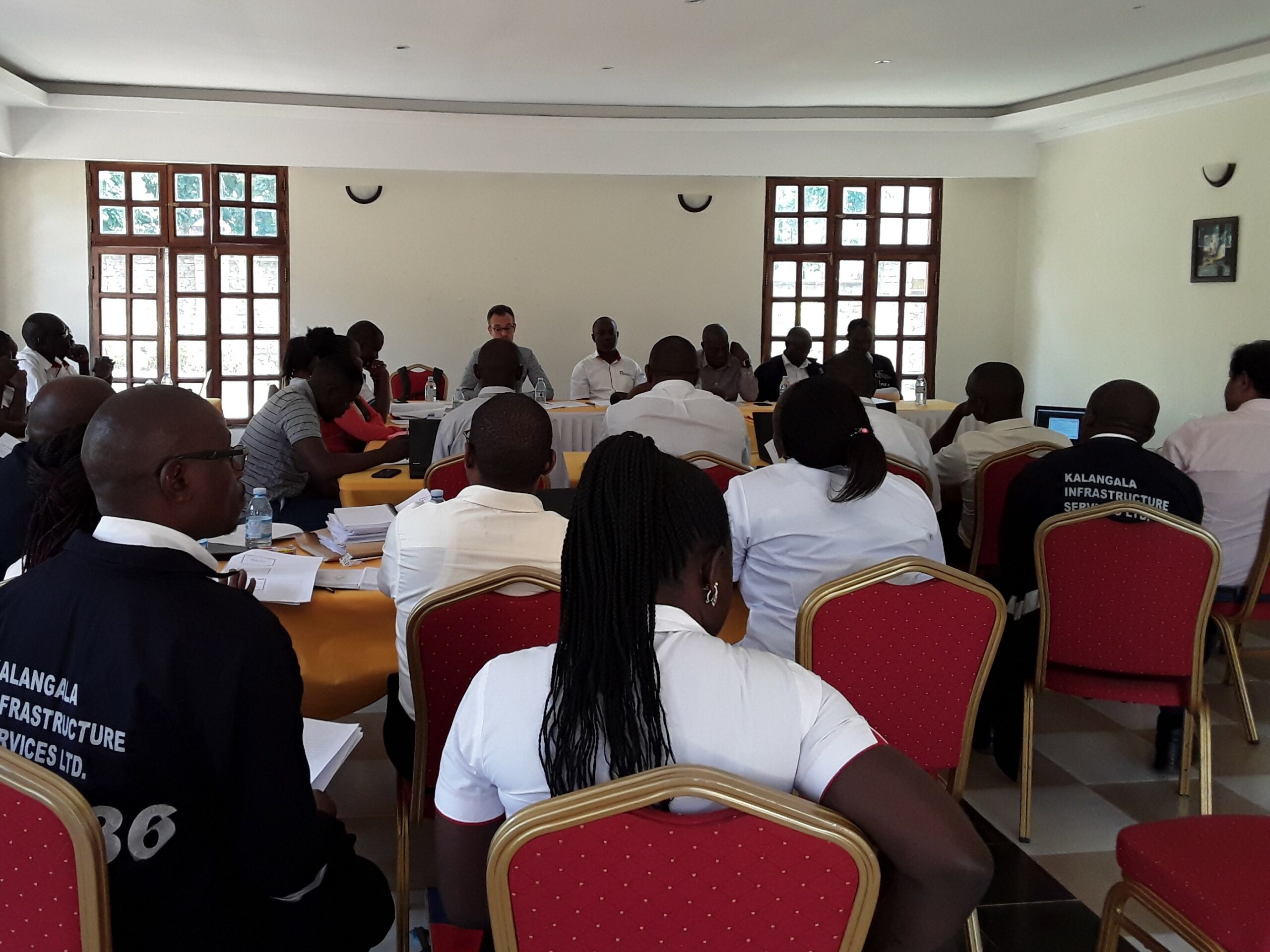
Embedding good governance -
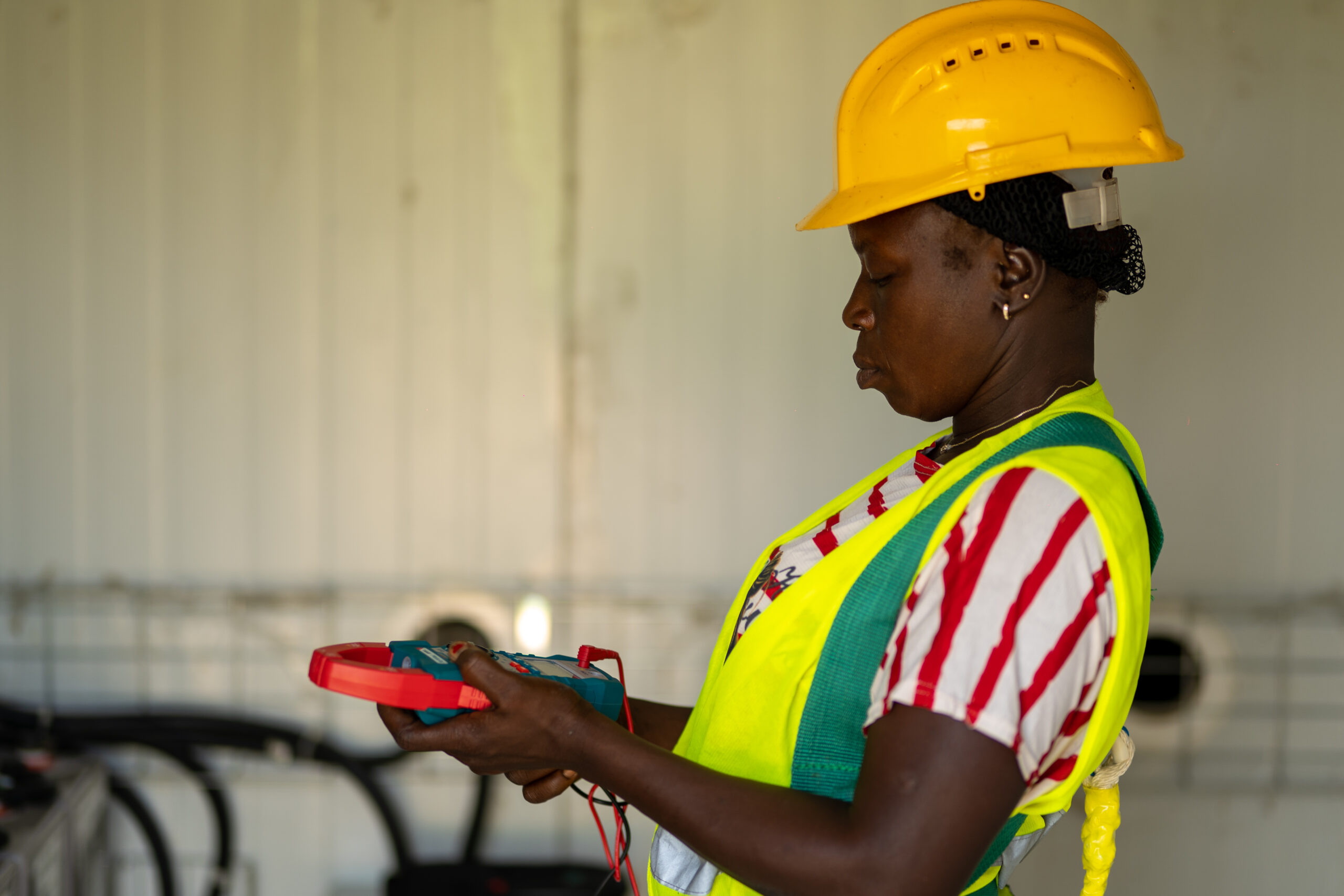
Ensuring gender equality
Facilitating broader change
Infrastructure also acts as a catalyst for indirect employment opportunities. This aspect of our work is something that is more difficult to quantify, and yet it underpins all that we do.
With clean power, people can switch on lighting to extend their business hours and enhance security. They can utilise powered equipment to enhance the productivity and profitability of their businesses. A new sector is also created to service the PV installations, providing employment opportunities for battery technicians, electricians, security and maintenance teams.
Our off-grid energy projects in Kenya and Sierra Leone are demonstrating the breadth of entrepreneurship that access to clean energy and affordable appliances can stimulate. People are growing their shops, salons and manufacturing businesses in remote and rural areas, and fewer young people feel that they must move to cities to find work. Public services are delivering better healthcare and improved learning opportunities for the next generation.
Across the continent, our on-grid energy projects will increase national installed power generation capacity, integrating renewables and contributing to wider employment as industries and businesses benefit from the improved availability and reliability of clean power.
With safe water, people can stay healthy and prevent the spread of communicable disease. They can irrigate their crops to ensure food security.
In Kenya and Uganda, our multi-sector projects incorporate water pumping and purification to provide clean, potable water for drinking and washing. In Zambia and Senegal our irrigation projects are enabling farmers to adapt to the impact of climate change, maximising their yields and household incomes.
With reliable transport and modern logistics infrastructure, people can transport goods to markets, generate greater profit and avoid waste.
In Uganda, our safe, reliable Kalangala Infrastructure Services’ ferries enable people to travel to mainland markets from Bugala Island. In Liberia, we are building the country’s first open-access warehouse facility to enable businesses of all sizes to store and manage their stock, facilitating smooth trade and preventing spoilages and thefts.
-
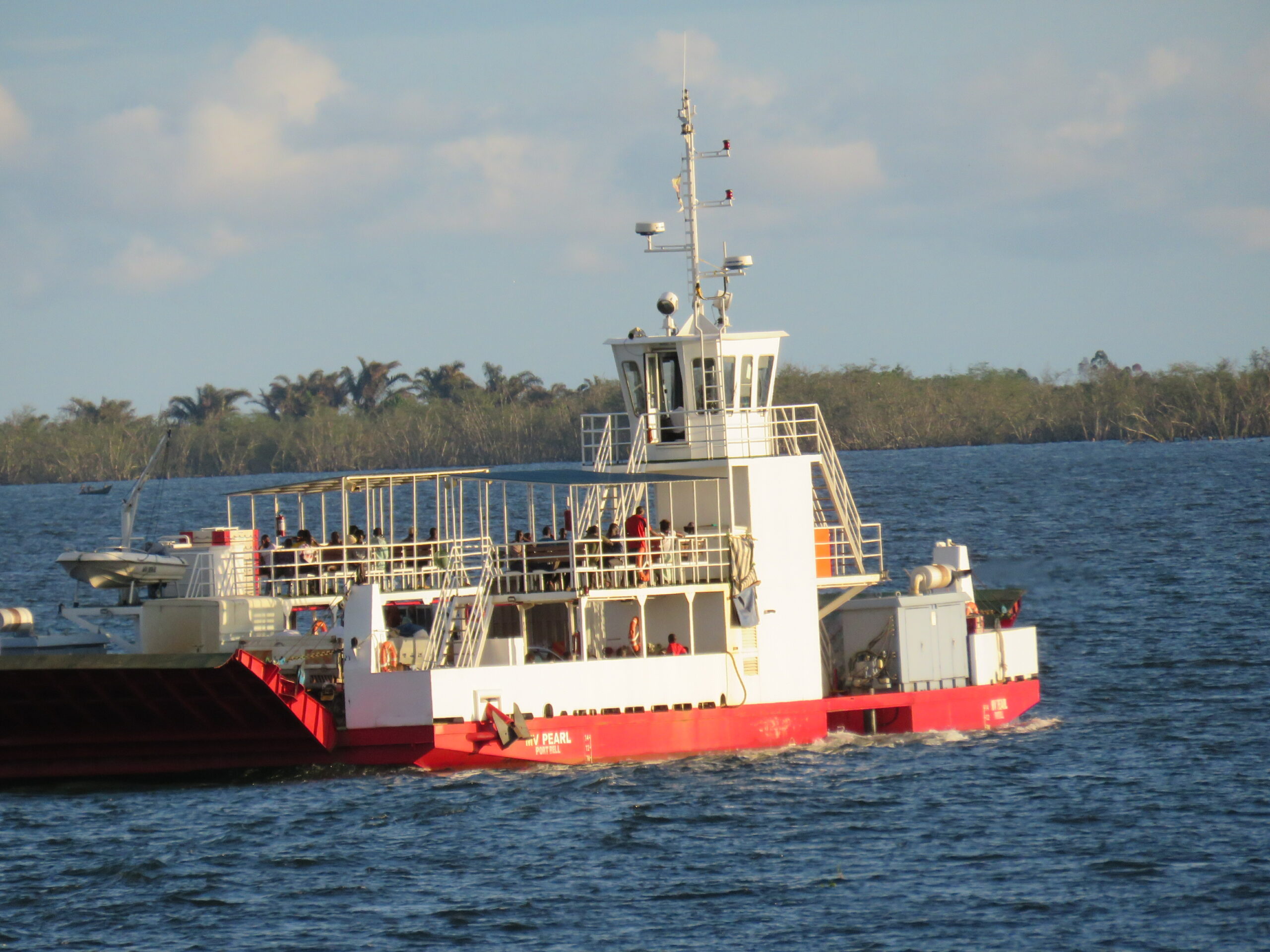
Reliable transport -
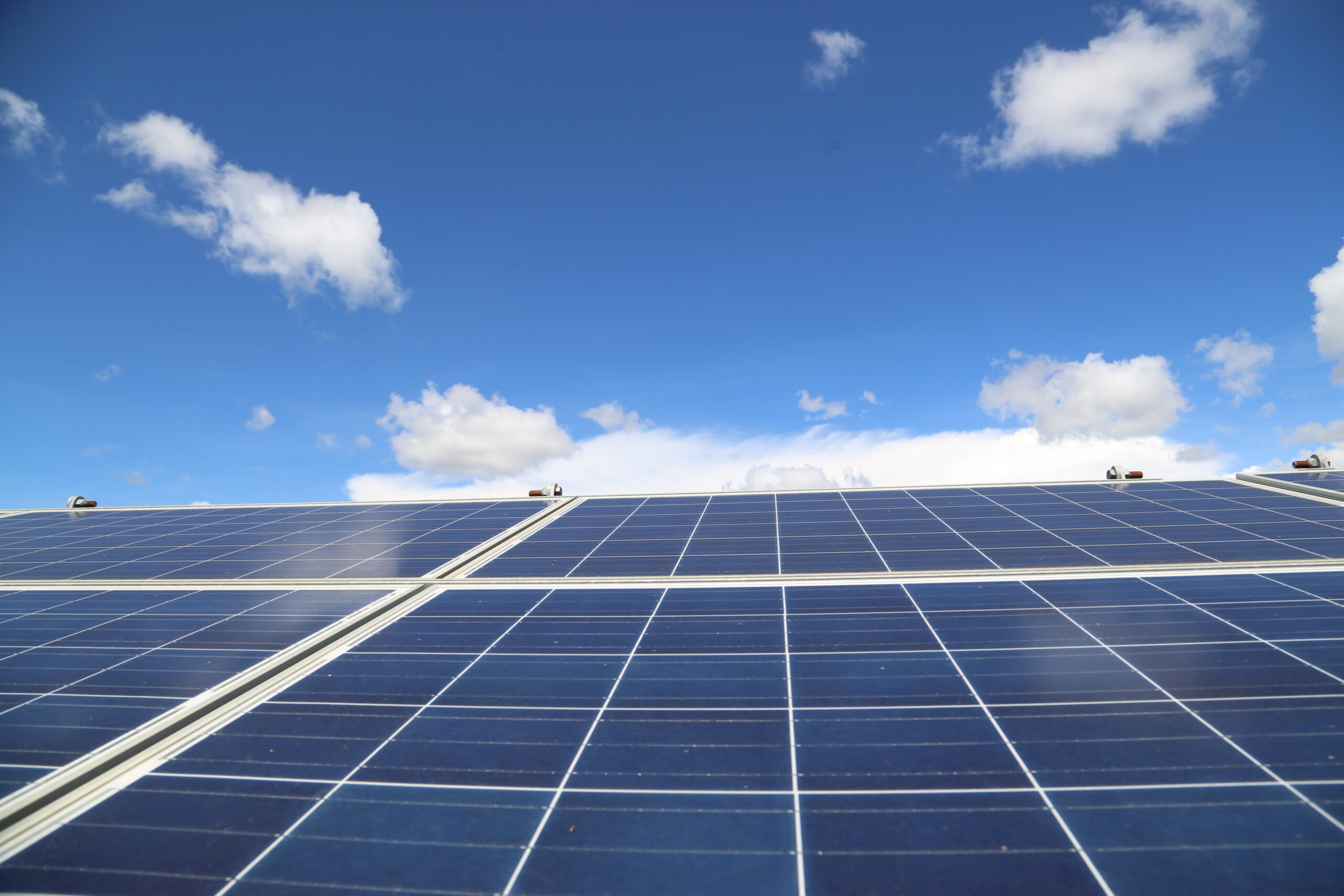
Clean energy access -
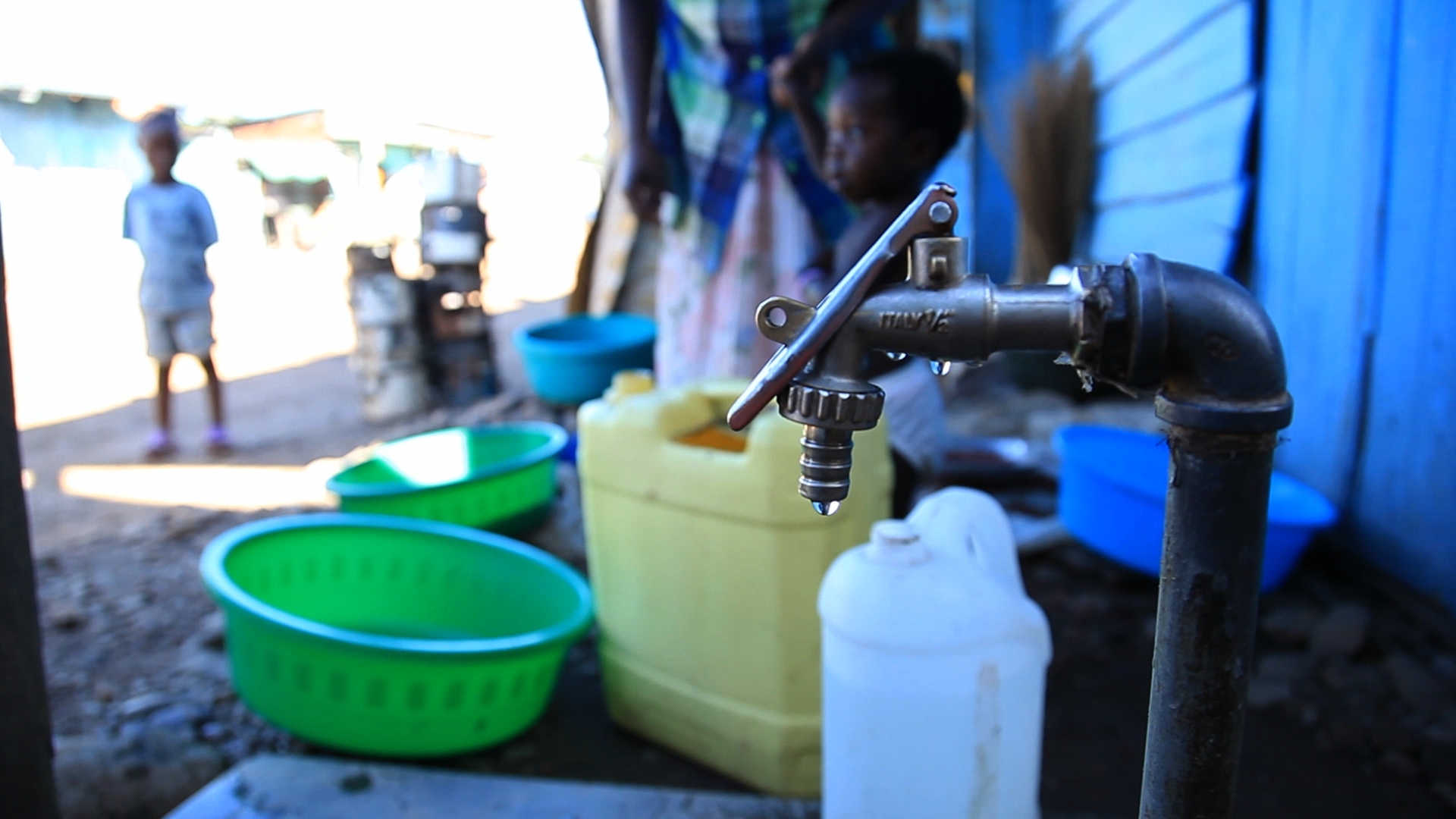
Safe water supplies
So, what next?
As the world seeks to achieve SDG 8 – Decent work and economic growth by 2030 – InfraCo Africa, PIDG and the wider infrastructure sector can play a key role in enabling people, particularly the young, to find and create skilled jobs locally, achieving their individual potential and underpinning sub-Saharan Africa’s future economic prosperity.
[i] https://www.undp.org/publications/africa-human-development-report-2016
[i]https://www.statista.com/statistics/1226158/median-age-of-the-population-of-africa/


